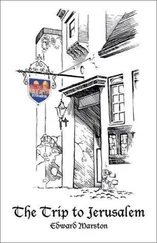The Sarahs were meeting in their boardroom, the kitchen, where the windows between the floor-to-ceiling family archives gave broad views of commercial traffic on the river.
Munk did a sharp military half-turn in the middle of the kitchen and came to attention facing his grandmother, the reigning chairwoman, Sarah the Second. To the old woman's right sat the heiress apparent, his mother Sarah the Third. Ranged elsewhere around the spacious room were Munk's aunts and grandaunts and female cousins, the entire governing board of the House of Szondi.
Good evening, Grandmother, he said, clicking his heels and saluting smartly. It's a pleasure to see you looking so well.
The old woman grimaced.
So well? Stop that nonsense, I look awful and I know it. I can't do a thing with my hair in this damp weather. And what is that perfectly dreadful smell coming out of your mouth?
Garlic.
You eat pure garlic?
Yes.
How much?
A large bulb before each meal and two more afterward.
Some slovenly Mediterranean habit you've picked up, I suppose?
Not at all. It's strictly therapeutic.
Bad Ottoman meat?
Yes.
Oh I remember now, it's in the archives. Well direct the fumes toward the floor as much as you can and say hello to everyone.
Good evening, Mother, said Munk. Good evening, he repeated, nodding politely around the kitchen to the collected assembly of the Sarahs, all of whom had knitting in their laps. Those who weren't working their needles in quick agitated strokes were patting their hair nervously or tugging at their bodices. The dozens of women were all dressed in black, without makeup, their hair drawn back into tight buns fixed by a single stickpin with a triangular diamond head. Each also wore a black hat, black gloves, and a modest diamond brooch of triangular shape above the left breast, the customary dress for a formal board meeting of the Sarahs.
Outrageous folly, exclaimed his grandmother, opening the meeting. For years now we've asked nothing more from the men of the family than to practice their music and stay out of the way, to behave themselves, and to give a performance or two at family gatherings. Little enough, one would think. But what do we find you doing down in this disreputable place called the Balkans? Making a spectacle of yourself. Attracting international attention. We're bankers, young Munk, and bankers don't like notoriety of any kind.
The knitting needles clicked furiously around the room. The crescendo was becoming deafening when his grandmother cleared her throat. Abruptly the clicking stopped.
The old woman leaned forward and everybody watched her. She winked.
We heard you were awarded the Order of the Golden Fleece today. Congratulations.
Thank you, Grandmother.
How was the dress parade your old regiment gave you?
Very impressive.
And the luncheon? How many courses?
Twelve.
You didn't hold back, did you?
No.
Well you're looking a little pale all the same. You should be eating more. Is it true you had a cavalry escort coming and going?
Yes.
And the chief of staff himself read the order of exile? His Imperial Highness sending personal condolences?
Yes.
The old woman leaned back and rolled her eyes. She smacked her lips. Around the room the knitting needles softly assumed a rhythmic clicking.
A grandson of mine, she murmured, just think of it. The youngest colonel in the Imperial Army. Aren't you proud?
Yes. Very.
As well you should be. The Russians are barbarians and not to be trusted. You treated them exactly as they deserved. Now then, down to business.
The old woman stroked her chin thoughtfully. Around the room his female relatives somberly studied their knitting. When his grandmother spoke again the needles clicked quietly.
To be frank, young Munk, your military career has ended at a most opportune time for us. The House of Szondi finds itself facing an extremely grave situation, and a woman just can't do the things in Arab and Turkish lands that she can do in Europe. Even though you've spent time down there I hadn't thought of you before because you're so young, but when we learned of your exile it seemed more than coincidental. One of our musicians would be useless on a mission like this, but with your military experience you might be able to accomplish something even though you are young. Anyway, I've decided it's going to be you.
Munk saluted.
At your service, madame.
His grandmother suddenly frowned and his mother's face was all at once troubled. Others in the room looked variously perplexed or fearful. Again all clicking stopped. The kitchen was hushed as his grandmother spoke.
We haven't told any of the men in the family about this, not wanting to worry you, but we've been aware of the situation for some time. Our information began coming in about twenty years ago. The first clues we had were fragmentary and haphazard, yet even then we filed them away. You can't be too careful in this business. You're not versed in the intricacies of banking and you wouldn't understand such financial subtleties anyway, so I won't bother to go into detail. I'll just say there are definite ways of knowing when a consortium or some other group is buying into an enterprise. Especially if the acquisition is a major one, so large it can only be acquired piece by piece. Can you follow that?
Yes, Grandmother.
All right, that's what happened in this case. During the last twenty-odd years when we've been aware of it, and obviously before that when we weren't, the enterprise in question has been cleverly bought piece by piece. Bought right out from under our noses. And since our very foundations were long ago established there, the effect on the House of Szondi could be catastrophic.
What enterprise was bought from under your noses?
The old woman glared through her spectacles. Her face darkened.
The Ottoman Empire, she hissed.
The what?
That's right, you heard me correctly. The evidence is there and there can no longer be any doubt about it.
A little over thirty years ago, as unreal as it seems, someone secretly began to buy up the Ottoman Empire.
You mean the Russians have been intriguing with the French or the English again? They've formed a secret alliance with the Germans?
No that isn't what I mean. Politics aren't involved. This is a straight business proposition and only one man is involved. One man has bought the Ottoman Empire.
But that's impossible, Grandmother.
Of course it is. We've been telling ourselves nothing else for years. Haven't we, girls.
She looked sternly around the room and his mother and aunts and grandaunts and female cousins all nodded vigorously. Then they all began talking at once to each other, loudly and rapidly, not listening to what anyone else was saying.
That's enough, girls, shouted his grandmother. Instantly the room was silent.
So you see, young man, the situation before us is more than staggering. It's critical and perhaps even fatal. The House of Szondi was founded on the basis of Levantine trade and now we find one man has bought the entire Levant. Who is he and what does he want? Why did he buy it? What does he intend to do with it?
You're sure it's a man? asked Munk.
His grandmother snorted contemptuously.
Of course it's a man, no woman would ever act so crudely. Perhaps some substantial and influential role behind the scenes, but not a whole empire in one ruthless grab. That's the work of a man.
Munk clicked his heels.
Yes, Grandmother.
Please don't interrupt again.
No, Grandmother.
Now to continue. We've gone back to the beginning to try to reconstruct events and the best we can do, the earliest scenes we can conjecture, are vague reports of an Egyptian emir and a Baghdad banker and a Persian potentate holding shadowy interviews in Constantinople in 1880, sitting down. Remember that, sitting down. The man seems to have been unnaturally tall, but it's impossible for our informants to say how tall because he was always seated. I say man, rather than men, because it's obvious to us that this emir and banker and potentate, forget the apparent nationalities and the way he paired them up with status for alliterative affect, were one and the same man, a dissembler able to disguise himself cleverly.
Читать дальше












